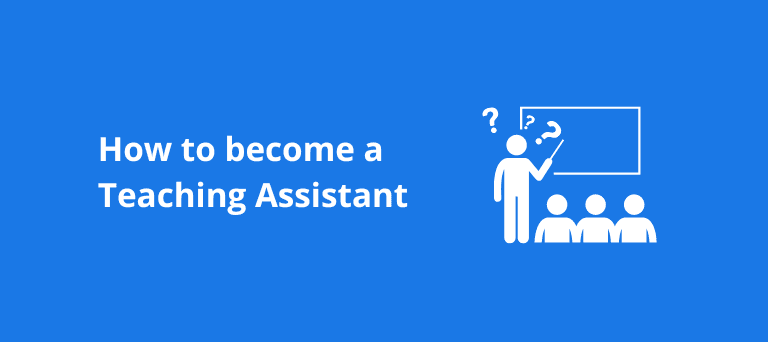Jack Fry, Teaching Assistant
18 Jun 2023
5
min read

Are you an empathetic, caring and supportive individual who's curious about how to become a Teaching Assistant? Are you interested in making a real impact on students' learning and development? Then Teaching Assistant roles could be perfect for you. As a TA, you can facilitate better access to education, support students in their academic journey, and contribute to their emotional and social growth.
Understanding the Teaching Assistant Role and Responsibilities
The role of a TA is fast-paced, exciting and hugely varied. Being flexible is essential. The role of the TA involves:
Supporting children and young people with SEND.
Supporting the class teacher with the delivery of lessons.
Communicating with and working in liaison with teachers about students' learning and development.
Helping with the preparation of work spaces, displays and classroom activities.
Helping with extracurricular activities or school events.
The role of TA is broadly similar across most schools, however your day-to-day responsibilities may differ depending on the organisation, classroom or individual needs.
Exploring Teaching Assistant qualifications
You don't need any specific qualifications to become a Teaching Assistant (but do read on to find out how to enhance your learning and practice). However, there are five qualities that will help you be effective as a TA: empathy, passion, determination & resilience, and adaptability.
Empathy
Many students you'll work with as a Teaching Assistant will have unique learning and behavioural needs. You need empathy to understand their challenges and offer the best possible support.
Passion
Passion for enabling, inspiring, and nurturing learning is crucial in Teaching Assistant roles and responsibilities. The most successful TAs genuinely care about enhancing the learning experiences of the children and young people they work with.
Determination & resilience
Teaching Assistant duties involve supporting students who may struggle with understanding or engaging with the assistance they're receiving. Determination to offer continued support and resilience against setbacks are essential.
Adaptability
The role of a Teaching Assistant is fast-paced, and classrooms are dynamic environments. As students have different needs and their behaviour can change at any moment, adaptability is key in a Teaching Assistant role.
Are There Other Requirements?
In addition to the personal qualities mentioned above, you'll need competent literacy and maths skills, since these are important aspects of Teaching Assistant responsibilities. Most employers will require a GCSE in English and Maths to a level 4 or above, though this isn't an essential requirement for all roles.
Some employers will ask for a relevant TA qualification. Recognised qualifications for Teaching Assistants include:
Level 2 Award in Support Work in Schools
Level 3 Teaching Assistant Diploma
Level 2 Certificate in Supporting Teaching and Learning in Schools
Level 2 Teaching Assistant Certificate
Level 3 Certificate in Supporting Teaching and Learning in Schools
Level 3 Diploma in Specialist Support for Teaching and Learning in Schools
You will also need a DBS check before being able to work in a school.
How to Find a Teaching Assistant Job
There are two main routes to securing employment as a Teaching Assistant: directly through a school or through an employment agency.
Direct applications
This route involves applying directly to the school, following their specific application procedure. If successful, you will be invited to an interview. The process typically includes a guided tour of the school and an observation in a classroom setting to assess your interaction with the pupils. You'll also undergo a formal interview, usually with the SEND coordinator and another member of the senior leadership team. Make sure to read the job specifications carefully. Although most Teaching Assistant roles don't require higher education qualifications, each opening may have different entry requirements.
Agency
The agency route involves applying with your CV on the agency's website. They will then match you with suitable roles. This route can often simplify the application process, as most of the legwork is done by the agency – but it’s worth noting that they’ll take a cut of your pay.
Your best option
A better alternative is Zen Educate, where you’ll be paid more money than with traditional agencies and find TA jobs near you in seconds.
Career Progression
Teaching Assistant roles can be a great stepping stone for various positions across the education sector. You may be considering a career as a teacher and want to gain experience working in a school before undertaking your teacher training. Alternatively, you might be interested in becoming a higher learning Teaching Assistant (HLTA) or specialising in SEN.
Whatever direction you choose, you won't be short of exciting opportunities. Schools will be eager to help you develop your skills and further your career, so don't hesitate to ask for support!



